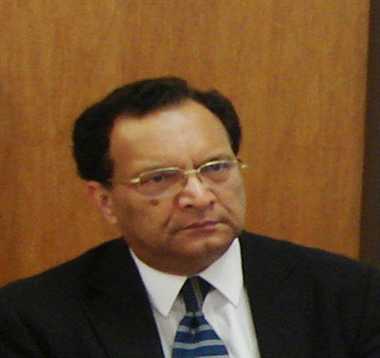New Delhi, Jan 1: Indian Police Service officer S.A. Ibrahim Tuesday took over as chief of the Intelligence Bureau (IB), becoming the first from the country's main minority community to hold the post.
Home ministry sources said Ibrahim took over as IB director Tuesday.
Ibrahim, an IPS officer of the Madhya Pradesh cadre, has taken over as from Nehchal Sandhu who retired Dec 31. He will hold the post for two years.
Ibrahim was appointed officer on special duty in IB last month after the government decided to elevate him as the head of the organisation. He was serving as special director in the IB earlier.
Sources said Ibrahim has direct experience in anti-terror operations and has handled responsibilites ranging from the Kashmir desk to cyber security cell.
In his initial career, Ibrahim had field postings in Madhya Pradesh and had encounters with dacoits of Chambal ravines.
Officials who have worked with Ibrahim describe him as a gentle, soft-spoken person with talent for information-gathering.
A former Research and Analysis Wing (RAW) chief said Ibrahim was "one of the finest officers".
Another former police officer, who has worked with Ibrahim in the IB, described him as a "soft spoken, very balanced person".
"He will make a very good DIB," the officer, who spoke on the condition of anonymity, told IANS.
The officer said Ibrahim had handled security in IB and his "heavy charter" included internal and industrial security.
Officials said Ibrahim had influenced thinking on terrorism and suggested that agencies need to pay greater thrust to outfits having base in the country.
They said that during his work in Jammu and Kashmir, Ibrahim laid emphasis on engagement with civil society for effectiveness of intelligence work.
Ibrahim's appointment comes at a politically crucial juncture as he will be head of IB during the next Lok Sabha polls scheduled for 2014.
Sources said the appointment will help counter an impression that members from the Muslim community do not make it to top posts in intelligence and also raise aspirations among members from the community to join the intelligence set up.
External Affairs Minister Salman Khurshid is also from the country's main minority community.







Comments
Add new comment